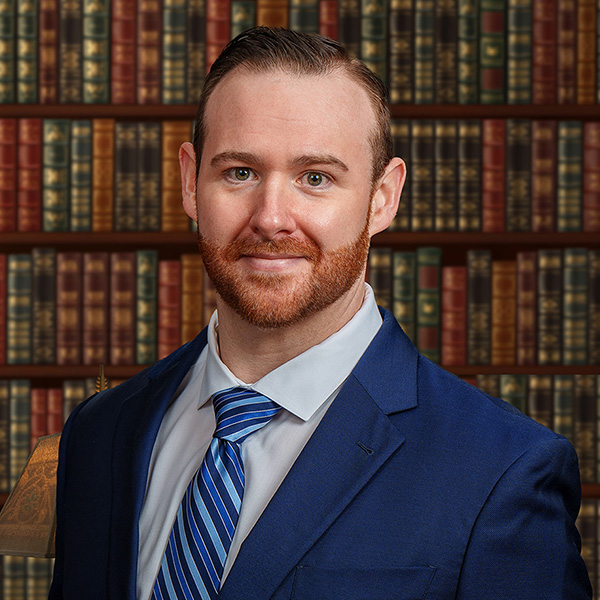When someone gets hurt on another person’s property, it is often referred to as a premises liability claim. In Pennsylvania, if you get hurt in a place like a store, a friend’s home, or a business, you might be able to seek help for your injuries by filing this type of claim. But how do you prove that the owner of the property is responsible for your injury? This can sometimes be a challenge because there are a lot of rules about what needs to be shown to make your claim successful. It is important to understand these rules so you can protect your rights if you are ever in a situation where you are injured on someone else’s property.
The state of Pennsylvania follows certain laws that guide how these claims work, and it is up to the person who is injured to show that the owner of the property was at fault. This can be done by collecting evidence and proving that the property owner either did something wrong or failed to do something they should have. The injured person needs to show that the property owner was careless in some way and that this carelessness led to their injury. It is not enough just to get hurt on someone’s property; there has to be proof that the owner was at fault. McDonald At Law provides dedicated legal representation to help clients navigate the complexities of premises liability cases and secure fair compensation for their injuries.
What Is a Premises Liability Claim?
A premises liability claim is what happens when someone gets hurt because of something dangerous on another person’s property. This could be something like a slippery floor, broken stairs, or poor lighting in a parking lot. When someone owns property, they have a responsibility to make sure that their property is safe for people who come onto it. If they fail to take care of their property, and someone gets hurt, they can be held responsible. This is where premises liability claims come into play.
In Pennsylvania, the law looks at why you were on the property in the first place. For example, were you invited onto the property, like in the case of a customer at a store? Or were you trespassing? The law treats these situations differently. People who are invited onto the property, like shoppers or visitors, are owed the highest level of care from the property owner. This means that the owner has to actively make sure their property is safe. For people who are trespassing or are on the property without permission, the law gives them fewer protections.
“Highly Recommended” is the epitome of an understatement when it comes to the firm of McDonald At Law!! Michael McDonald’s genuine pleasant, and empathetic demeanor masks his legal astuteness, and the level of aggressiveness he implements in pursuit of a victim’s right and the monetary compensation legally entitled to us. I was involved in a motor vehicle accident at the hands of an intoxicated driver in York County. In my case I suffered what I described as an atypical injury, Mr. McDonald offered to be my Lawyer immediately after explaining to him the events leading to and after being struck in turn causing me to have a heart attack, when another law firm seemed hesitant. McDonald At Law secured a sizable monetary compensation that not only met my expectation but exceeded it. Mr. McDonald’s wealth of experience, and legal prowess is priceless and never did he act as the case was beneath his practice. In the end my family and I were well compensated, but also felt justified. Thank you McDonald At Law!!- Miguel Lopez
How to Prove Fault in a Premises Liability Claim
Proving fault in a Pennsylvania premises liability claim can sometimes be difficult because there are several things that must be proven. The first thing you need to show is that the property owner had a duty to keep the property safe. This duty is usually clear if you were invited onto the property as a customer, visitor, or even a guest in someone’s home. The owner must take care to prevent accidents from happening by keeping the property free of dangers.
The second part of proving fault is showing that the owner did not take this duty seriously. This might happen if the owner knew there was a problem, like a broken step or a spill on the floor, but didn’t fix it or warn people about it. Sometimes, it might be that the owner should have known about the problem, even if they didn’t actually know. For example, if a store manager walks by a spill on the floor but doesn’t clean it up right away, they may still be responsible for any injuries that happen as a result of the spill. The law calls this “negligence,” and it is a key part of proving fault.
Next, you have to prove that the owner’s carelessness is what caused your injury. This means that if the dangerous condition did not exist, you would not have been hurt. The injury must be directly tied to the unsafe condition on the property. If you slipped on a wet floor in a grocery store, for example, you would need to show that the wet floor is what caused you to fall and hurt yourself. This might seem simple, but sometimes there are other factors that can make this harder to prove. For example, if you were not paying attention while walking, the property owner might try to argue that your own actions played a part in the accident.
Lastly, you need to show that you suffered damages from the accident. These damages could be medical bills, lost wages, or pain and suffering. It is not enough just to show that you were injured; you also need to prove how the injury has affected your life and what it has cost you in terms of money, time, and well-being.
Putting off an Attorney due to Cost Choosing a Personal Injury AttorneyRelated Videos
Common Defenses in Premises Liability Claims
In Pennsylvania, property owners often try to defend themselves against premises liability claims by arguing that they were not at fault. One common defense is that the injured person knew about the danger and chose to take the risk anyway. This is called “assumption of risk.” For example, if a store had a clear sign warning about a wet floor, but you chose to walk across it anyway, the owner might argue that you accepted the risk by doing so. In this case, it might be harder to prove that the property owner was responsible for your injury.
Another defense is that the injured person was careless themselves. The property owner might try to show that the injury happened because the person was not being careful, such as by running, looking at their phone, or ignoring warnings. This defense is often referred to as “comparative negligence.” In Pennsylvania, even if you were partly responsible for your accident, you may still be able to recover damages. However, if you are found to be more than 50% responsible for the accident, you cannot collect any money from the property owner. If you are less than 50% responsible, the amount you can recover will be reduced by the percentage of your own fault.
Verdicts & Settlements
Evidence in Premises Liability Claims
One of the most important things in any premises liability claim is the evidence you have. To prove that the property owner was at fault, you will need to gather as much evidence as possible. This might include photos of the dangerous condition that caused your injury, statements from witnesses who saw what happened, and any reports made about the accident. Medical records can also be important, as they show the extent of your injuries and the treatments you have needed.
In some cases, there may also be surveillance footage that can help show what happened. If your accident took place in a store or a parking lot, for example, there might be security cameras that captured the event. It is important to act quickly to get this evidence, as some businesses only keep video footage for a short period of time before it is deleted.
Another important piece of evidence is any communication with the property owner or their insurance company. Keep records of any emails, letters, or phone calls related to the accident. These communications can sometimes help show that the property owner was aware of the dangerous condition or that they were trying to avoid responsibility.
The Role of an Attorney in Proving Fault
Proving fault in a premises liability claim can be a difficult process, and having an experienced attorney by your side can make a big difference. Attorneys know how to gather the necessary evidence and build a strong case that shows the property owner’s responsibility for your injuries. They can help ensure that all legal deadlines are met, and they will represent your interests in negotiations or in court if necessary.
An attorney can also help you avoid common mistakes that people sometimes make in premises liability claims. For example, talking to the property owner’s insurance company without an attorney’s help can sometimes hurt your case. Insurance companies often try to get you to say things that can be used against you later, so having an attorney to handle these conversations is important.
A knowledgeable attorney can also help you understand how much your case is worth. They will work with you to calculate all of the damages you have suffered, including medical expenses, lost wages, and the emotional toll of your injury. By doing this, they can help you seek the full amount of compensation you are entitled to.
If you or a loved one has been injured on someone else’s property, you may be entitled to compensation. Proving fault in a premises liability claim can be challenging, but with the help of McDonald At Law, you don’t have to go through it alone. Our team understands Pennsylvania’s premises liability laws and can guide you through the process of seeking justice. Reach out to us today for a free consultation, and let us help you get the compensation you deserve.



